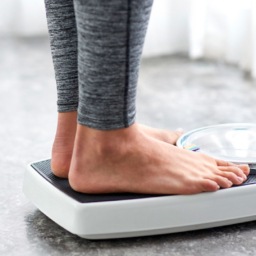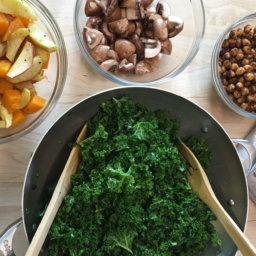
Hey there! I’m Brett McNeil, the fitness consultant for FitMinutes. Throughout the month, I’ll be answering a few questions from our readers. This week, it’s all about dieting. Read on to learn my thoughts on choosing the right diet for you.
Q: What diet is right for me?
A: Ah, the million dollar question and likely one of the most talked about topics in the health and fitness world. With all these fad diets hitting the internet, we can see why it is so challenging to understand what “dieting” really is. In most cases, people are looking for quick and easy when it comes to attaining positive results from their diet, but this isn’t entirely reasonable or attainable. If you want long-term health and results from your diet, it won’t be quick. If you want a quick fix in the shortest amount of time, it likely won’t be healthy or sustainable.
I personally think setting goals is extremely important when picking your diet. Don’t jump on the internet and pick a diet just because Nancy next door said she did really well with the Keto diet. Establish what you want out of it, and why. If you want to lose weight, great. But how much weight would you like to lose, and in what timeframe? Is that timeframe reasonable? On the flip side, if you want to put a little bit of weight on in the form of muscle, we can ask the same questions. The best place to start? Establish some goals before diving into the conversation of picking a diet.
After you’ve established those goals, now we need to see where you’re at. Let’s see what your current body weight sits at, take some measurements and check your body mass index (BMI). There are tons of ways to get measurable data, and we need to be tracking that data as we continue on our healthy lifestyle journey. The next best thing to do is track your food. For a lot of people, this is just a pain in the butt, but it’s worth a little annoyance and a little work to open your eyes to any bad habits you may have. You could find that you’re eating 4 bags of chips a week and didn’t even notice. By tracking what you eat, you’ll become more aware of what you’re putting into your body. You won’t need to track your food forever, but every once in a while, it’s a good idea to check yourself to see what’s really going on. This is extremely beneficial to creating healthy lifestyle habits. Read our review on the MyFitnessPal app and how it can help you track your food, water intake and weight.
Now we can then start to dive into what is going to produce the best results but also promote long-term healthy lifestyle habits. Precision Nutrition (look them up, they’re awesome) offers different courses for people looking to become nutrition coaches. No, these people aren’t dieticians (some are by trade) but the knowledge this company provides their clients is top notch. Someone like this would be a good person to chat with. They put a massive emphasis on creating great lifestyle habits but doing it at a pace that isn’t too fast. Cutting cold turkey is sometimes just as counterproductive than the crappy diet some of us are currently on. They recommend small changes and even aim to find healthy alternatives to our not-so-healthy choices. If you have a love for chocolate, for example, and need to have it in your life, they may suggest you switch to dark chocolate. Yeah, it’s not optimal to be eating a ton of chocolate, but dark chocolate tends to be significantly better for you than white or milk chocolate.
Now look, I’m not saying all these diets you’re likely seeing on the internet aren’t going to work. Keto, Paleo, IIFYM (If It Fits Your Macros) and Mediterranean diets have all produced positive results. But if the diet isn’t providing you with the information you need to establish lifelong, healthy habits, then it isn’t the best choice for you. You need to find the best fit for YOU.
Want the CliffsNotes version of my answer? Eat healthy, whole foods as much as possible. Don’t get me wrong, life happens and sometimes we need quick, easy and convenient. However, the more we stick to whole foods—fruit, vegetables, lean meat, fish, whole grains, nuts and seeds—and try to limit our processed food intake, the better the direction we are headed in with our lifestyles.
Have a health or fitness related question for me? Or just want to say hey? Reach out in the comments below!
















Great post! I like the advice on making small changes initially and also tracking what you eat – sometimes you just don’t realize just how much of ‘x’ food you’re consuming per week, and just cutting back on that alone can make a difference!